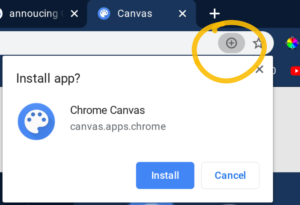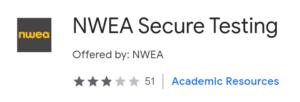Google announces it will phase out Chrome Apps for all devices
In an email to developers sent on January 15, 2020, Google announced that it will end support for Chrome apps starting in 2021.
“As we previously announced in 2016, changes in support for Chrome Apps on Windows, MacOS and Linux will begin starting March 2020. We are writing to let you know the details about this plan, along with some important updates about ending Chrome app support on Chrome OS.
Starting this year, we will no longer provide support according to the following schedule. Please note, these timelines are for Chrome Apps only, and do not impact Chrome Extensions.
- March 2020: Chrome Web Store will stop accepting new Chrome apps
- June 2020: Chrome Apps on Windows, Mac, and Linux will no longer be supported. Customers who have Chrome Enterprise or Chrome Education Upgrade will have access to a policy to extend support through December 2020.
- June 2021: Chrome Apps on Chrome OS will no longer be supported. Customers who have Chrome Enterprise or Chrome Education Upgrade will have access to a policy to extend support through June 2022.
- June 2022: Chrome Apps will no longer be supported on Chrome OS for all customers.”
Is this a big deal?
Chrome Apps were conceived in the era before Android and Progressive Web Apps (PWAs) as a way to develop advanced web applications.
Over the past three years, Chromebooks have gained the ability to access Android, Linux, and PWAs which have made Chrome Apps redundant.
According to Google, less than 1% of users are actively using Chrome Apps. Many Chrome Apps are little more than bookmarks to websites (although there are some notable exceptions such as Papercut Mobility Print, Chrome OS Recovery Utility, and Chrome Sign Builder).
What will replace Chrome Apps?
Developers have a little more than a year to migrate Chrome Apps to one of three platforms.
Chrome Extensions
Support for Chrome Extensions remains unchanged. Some developers may decide to convert their Chrome app into a Chrome extension.

Progressive Web Apps
PWAs are nearly identical to Chrome Apps. The major difference is that a PWA is installed directly from the developer’s website, not from a centralized location like the Chrome Webstore.
PWAs are the most obvious replacement for Chrome Apps. Google has pledged support to help developers migrate existing Chrome Apps into PWAs.
If a website offers a PWA you will see a special icon appear in the Omnibox, near the bookmark star. Click this symbol to install the PWA on your device.
Chrome Canvas is a good example of a website that offers a PWA that you can install to your device.
Android Apps
Android Apps offer a wide range of capabilities that can handle complex tasks such as editing video and audio. Many existing Chrome Apps are available as Android Apps.
What about kiosk apps for standardized testing?
One of the most critical applications for Chrome Apps in classroom settings is managing state assessments. Testing apps like NWEA Secure Testing and AIR Secure Test will be impacted by this announcement.
I reached out to my contacts at Google for more information on the fate of secure testing on Chromebooks. Cyrus Mistry, Group Product Manager for ChromeOS Platforms & Ecosystems provided the following statement:
“Google will work closely with all major testing providers to ensure all schools have nothing to worry about as far as continuity of service.”
Cryus was an early guest on my podcast. During our conversation he shared some interesting stories about the early development of the ChromeOS platform.
Don’t panic…everything will be fine!
For education customers, support for Chrome apps will continue through June of 2022, giving everyone two full school years to review and test new solutions.
In their announcement, Google indicated that education customers would have the option to request an extension for Chrome app support through 2022.
Administrators will need to request this extension starting in June of 2020.
The transition away from Chrome Apps was inevitable.
While I’m a bit sad to see Chrome apps sail into the sunset, ultimately it makes a lot of sense as Chrome and Android become more closely linked and the native web becomes more capable.








I’m trying to understand this. If Google Apps is going away…does that mean that G Suite goes away too? I mean, Google docs, sheets, drawing or will these be existing as extensions?
Hi Fernando!
Chrome Apps are going away, not Google Apps.
Chrome Apps are packaged programs that were designed to run on Chromebooks. With the addition of Android Apps and PWAs, Chrome Apps are no longer a necessary option.
IS GMAIL GOING AWAY ?
No.
I strongly disagree with “With the addition of Android Apps and PWAs, Chrome Apps are no longer a necessary option.”, except you got some news on Google implementing some new low level APIs.
Communication via TCP and Serial are very limited in PWAs. Not every client runs Android, not every communication is over HTTPS. The latter restricts the usage of the WebSerial and other low level APIs, and so far, the WebSerial API is 70 % implemented at best, and again postponed (to Chrome 89 at the time of writing this comment).
If the switch should be a success, Google better implements 100 % of the Chrome App features for usual websites.
I think that is the plan.
Google would also like all web traffic to be HTTPS.
Hi, John! What about the Classroom app I use on my Chromebook? It’s very important for me to grade my students work with the built in handwriting feature…
It sounds like you are using the Google Classroom Android app…Android apps aren’t impacted by this announcement, only Chrome web apps.
Thank you, John. And what about canvas.apps.chrome? It will be a real loss if they discard that app. It’s really useful for making quick sketches and explanations, especially because of the sensation of handwriting that other apps do not provide.
Hi. Thanks for the article. Where do we request the extension for support of Chrome Apps until June 2022? Thanks for any info you can provide.
This is a good question; I don’t think the process has been announced.
My guess is that you will need to make the request through the Google Admin console.
I would expect an announcement sometime this spring as the deadline approaches.
I paid nearly a thousand dollars for my Chromebook specifically because I needed the hardware required to run programs. Now even text editors are telling me they have to run in the browser buried among my tabs. Text editors that I need to run on the computer, to save on the computer, so that I can SSH a server with code updates. Even my calculator stopped working. What kind of idiot at google thinks that I want to open a browser window and type when a touch screen calculator is simpler and intuitive? I also just today lost the ability to have a little window appear in the bottom right of my screen when i pull out the stylus that allows me to take screenshots, select an area of the screen to capture, or draw. I have to use the browser for that too? How is that better?
If they want to discontinue support, fine, but outright destroying features I paid for without my permission? That has got to be illegal.
The ability to run apps on your Chromebook will not change.
Google is no longer hosting those apps through the Chrome Webstore. The app developer will need to serve those apps from their own websites as progressive web apps (PWAs).
I’m sorry to hear you are frustrated by your Chromebook experience.
The Chrome browser interface includes a lot of customization options that you can tweak to run your web apps as tabs or separate windows. I think if you will spend a little time exploring the options you will find a solution that you can live with.
What about Zoom on Chrome OS? The actual web version is even worst than the Chrome App version!
I use Zoom through the web browser on my Chromebook. Works okay. Unfortunately, some of the fancier features of Zoom aren’t available to ChromeOS.
Zoom can continue to maintain a Chrome app even after the webs store closes, but they need to host it on their own website.
I purchased a Chromebook recently for my 90-year-old aunt, who uses it primarily to go online and email. She uses gmail. She emailed me and asked if there is something she needs to do. She keeps getting a message, “Transitioning from Chrome Apps.” What do I tell her?
Everything will work out just fine. She can ignore that message. You will still be able to download apps on a Chromebook, but you won’t get them through the Chrome webstore.
Thanks so much.
I am thinking about going from my laptop and going to Chromebook. Is that a bad move? Or should I stick with laptops? I am not a gamer and I am 80 years old.
I think it’s a great idea, as long as you are comfortable using Gmail, Drive and Google Calendar.
A Chromebook is my only device. It’s really not worrying about viruses or managing updates. It just works!